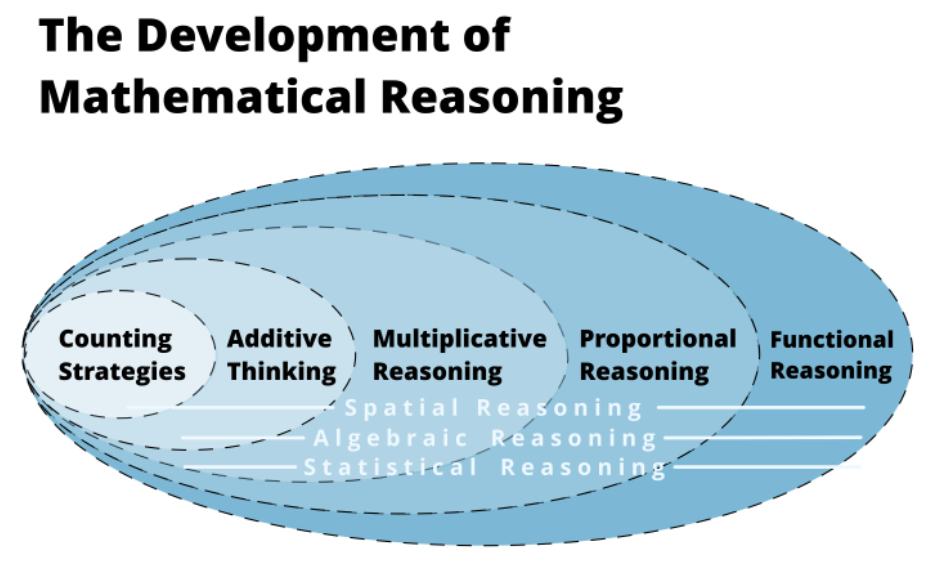Mathematical reasoning and problem-solving is the heart of mathematics (Hasanah et. al, 2019). The great part about co-teaching is that it allows more opportunities for differentiation, discovery and problem-solving due to having two teachers that can offer students' opportunities.
Challenges Combining Co-Teaching and Research-based Methods
Unfortunately, according to Indriati (2018), there exists three challenges for blending co-teaching with research-based methods for teaching mathematics. The first challenge exists in "identifying research-based practices for specific mathematics content areas, particularly for algebra, geometry and data and probability". The second challenge is that "some instructional practices may not be appropriate for all individuals and their level of content knowledge". The third challenge is that "some research-based practices will not work well in a co-taught general education setting" (p. 4). Therefore, teaching mathematics in a co-taught high school classroom with the goal that students are able to reason and problem solve means facing and overcoming obstacles.
Reasoning and Problem-Solving
"Students show mathematical reasoning when able to make a problem-solving plan, carry out the plan and when they are able to reexamine a problem and its solution" (Hasanah et. al, 2019, p. 7). Co-teaching provides opportunities for students to get practice, with and without support in this reasoning process. By intentionally dividing students up into homogenous groups and by providing multiple opportunities for students to gain confidence in their mathematical skills, students are also making progress in their abilities to mathematically reason. In addition, essential opportunities are more available that "value and promote reasoning explicitly, persistently, consistently and frequently" (ACE, 2017, para. 4).
Additionally, according to Indriati (2018), there exists a weakness in secondary students in making mathematical connections due to "the low creativity of thinking and organizing ability between ideas and concepts in mathematics" (p. 9). Because co-teaching provides two teachers to each student, there exists many co-teaching models, such as those discussed in my fourth post called "Co-Teaching Models", that can be used to help students make these connections across concepts. For example, using the Flip/Flop Switch, students can learn the concept with Teacher A and then go over to Teacher B and work on making a concept web with this new concept and prerequisite skills with Teacher B. Without these connections, mathematical reasoning becomes nearly impossible for the student as attempts to build from one concept to the next in order to solve a problem posses much more of a challenge as there is less knowledge and understanding to draw from. Without the ability to make these connections, the critical skills of mathematical reasoning cannot be achieved, the skills that enalbes a student to make use of all other mathematical skills (ACE, 2017, para. 1).
The Importance of Reasoning in My Current Classroom
Mathematical reasoning is so important to all students, but I have seen an extreme need for it this past year. In the co-taught Geometry class that I taught during the 2021-2022 school year, 68% chose to attend our career and technical center for the remaining part of their high school career. Most of these students are going to pursuing skills in the field of construction, welding and masonry, all of which are fields in which mathematical problem solving in necessary. Therefore, as freshmen and sophomores, my co-teacher and I have become devoted to equipping our students with the mathematical skills most necessary to become successful in their pursuit. This has led to an increase in exposing students in the reasoning process early by helping them understand a problem, reasoning during their planning, reasoning is resolving and reasoning in drawing conclusions (Hasanah et. al, 2019, p. 1). Though, at the beginning, there is a lot of complaining, I have noticed students are even more appreciative at the end of the year in that they have more confidence in their ability to face and overcome challenging problems.
References
American
College of Education (ACE). (2017). Mathematical reasoning. Module 1 [Video]. Canvas. https://ace.instructure.com/courses/1768876/external_tools/118428
Hasanah, S. I., Tafrilyanto, C. F., & Aini,
Y. (2019, March). Mathematical Reasoning: The characteristics of students’
mathematical abilities in problem solving. In Journal of Physics: Conference Series (Vol. 1188, No. 1, p. 012057). IOP Publishing.
Indriati, D. (2018, April). Profile
of mathematical reasoning ability of 8th grade students seen from
communicational ability, basic skills, connection, and logical thinking. In
Journal of Physics: Conference Series (Vol. 1008, No. 1, p. 012078). IOP
Publishing.


Comments
Post a Comment